Bee pollen is commonly marketed as a “natural” treatment for allergies, and there’s widespread belief that eating local honey can prevent allergies by exposing you to pollen, similar to the way a vaccine might work.
Yet despite its popularity, there’s actually no good evidence to support this claim.
And what’s more: The claim doesn’t actually make sense.
Pollen grains are kind of like plant sperm. When plants have sex, the male pollen fertilizes the female ovules, which develops into seeds. But since plants are immobile, the pollen itself has to move, a feat they accomplish using usually wind or animals.
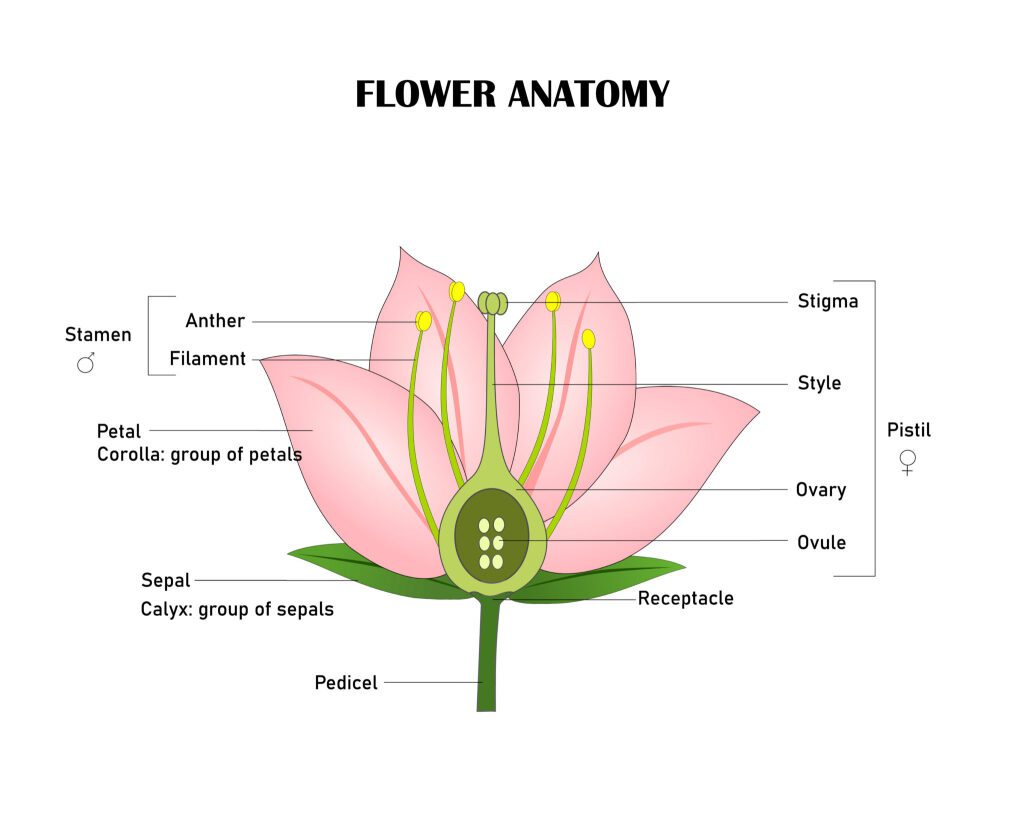

When most people think of flowers, they think of the those with brightly-colored petals. But why would plants spend their energy making colorful, showy displays? To attract animals to help them have sex! Bees, butterflies, beetles, moths, hummingbirds, and even bats visit the flowers for sugary nectar, and in the process, the heavy, sticky pollen adheres to parts of their bodies. When the animals visit the next flower, some of the pollen is transferred.
In contrast, plants like grasses, many trees, and “weeds” are wind pollinated, so they don’t bother with the advertisements. Indeed, many people are unaware that these plants even flower. Instead, they produce high quantities of light-weight pollen that can easily move through the air, increasing the chances that at least some of the pollen will land on another flower.
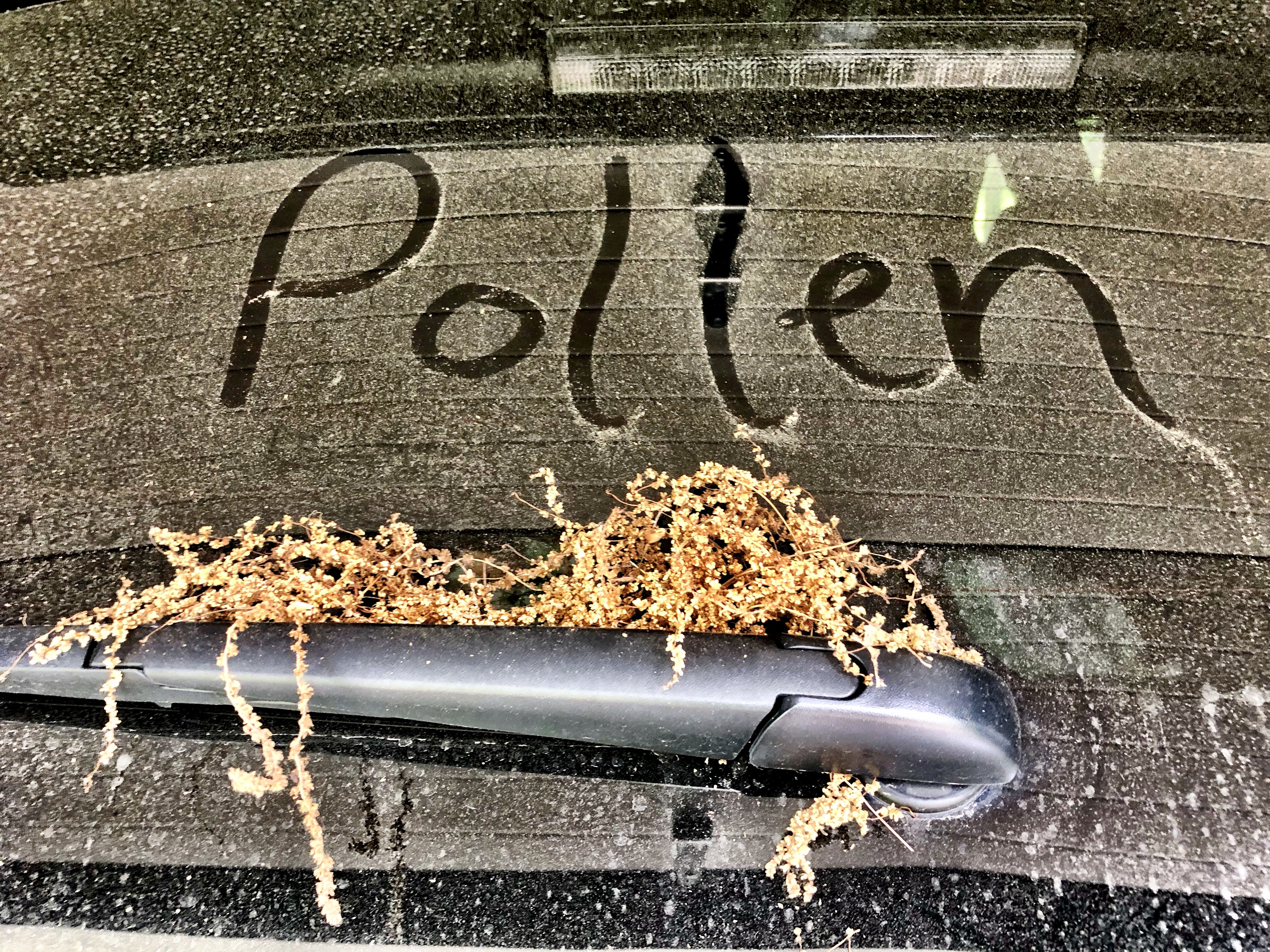
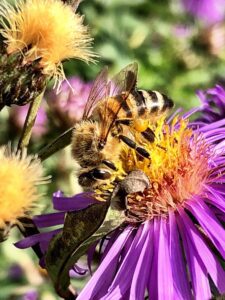
What does this have to do with allergies?
Pollen allergies are caused when we inhale pollen, and only wind-pollenated plants produce pollen that’s light enough to be in the air. Even more, there’s very little pollen in honey. So it simply doesn’t make sense that bee pollen or honey would help with seasonal allergies.
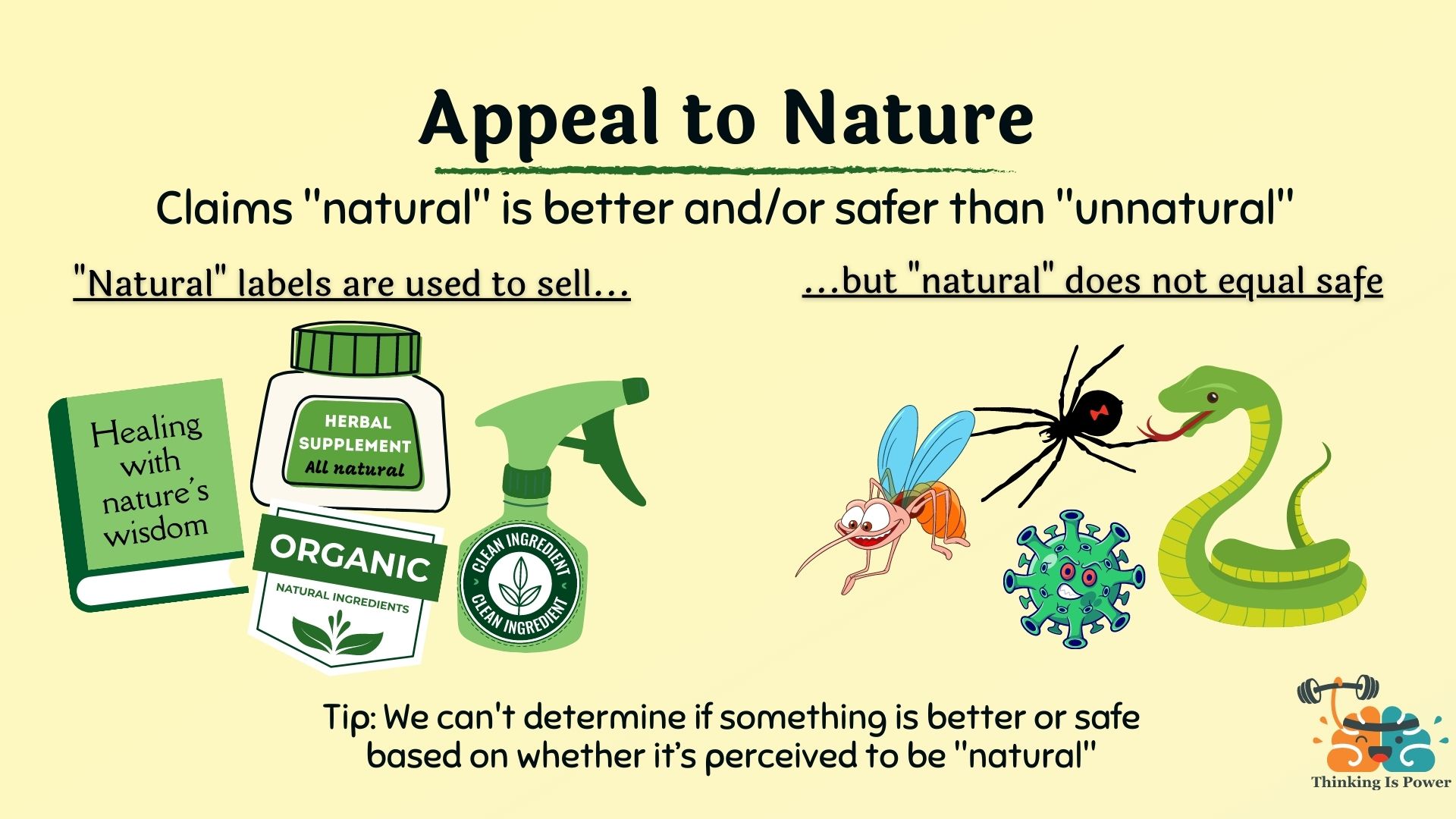
Source: Guide to the Most Common Logical Fallacies
Like many alternative medicine “treatments,” the use of pollen to treat allergies is based on an appeal to nature fallacy. Yet it’s important to remember that something’s perceived ”naturalness” doesn’t make it better, safer, or more effective.
Bee pollen also contains bacteria, fungi, bee fecal material, and insect body parts. And like other supplements, bee pollen isn’t regulated by the FDA, and some have been known to be contaminated with drugs. It’s even been known to cause mild to fatal allergic reactions.
Isn’t skepticism awesome? It can protect our health AND our pocketbooks!
The Take-Home Message
The claim that bee pollen can treat allergies isn’t supported by evidence and doesn’t make sense. You’re probably not allergic to the flowers you see, but the flowers you (and bees) don’t see.
To Learn More
Forbes: Does bee pollen help with allergies?
University of Rochester Medical Center: Bee pollen
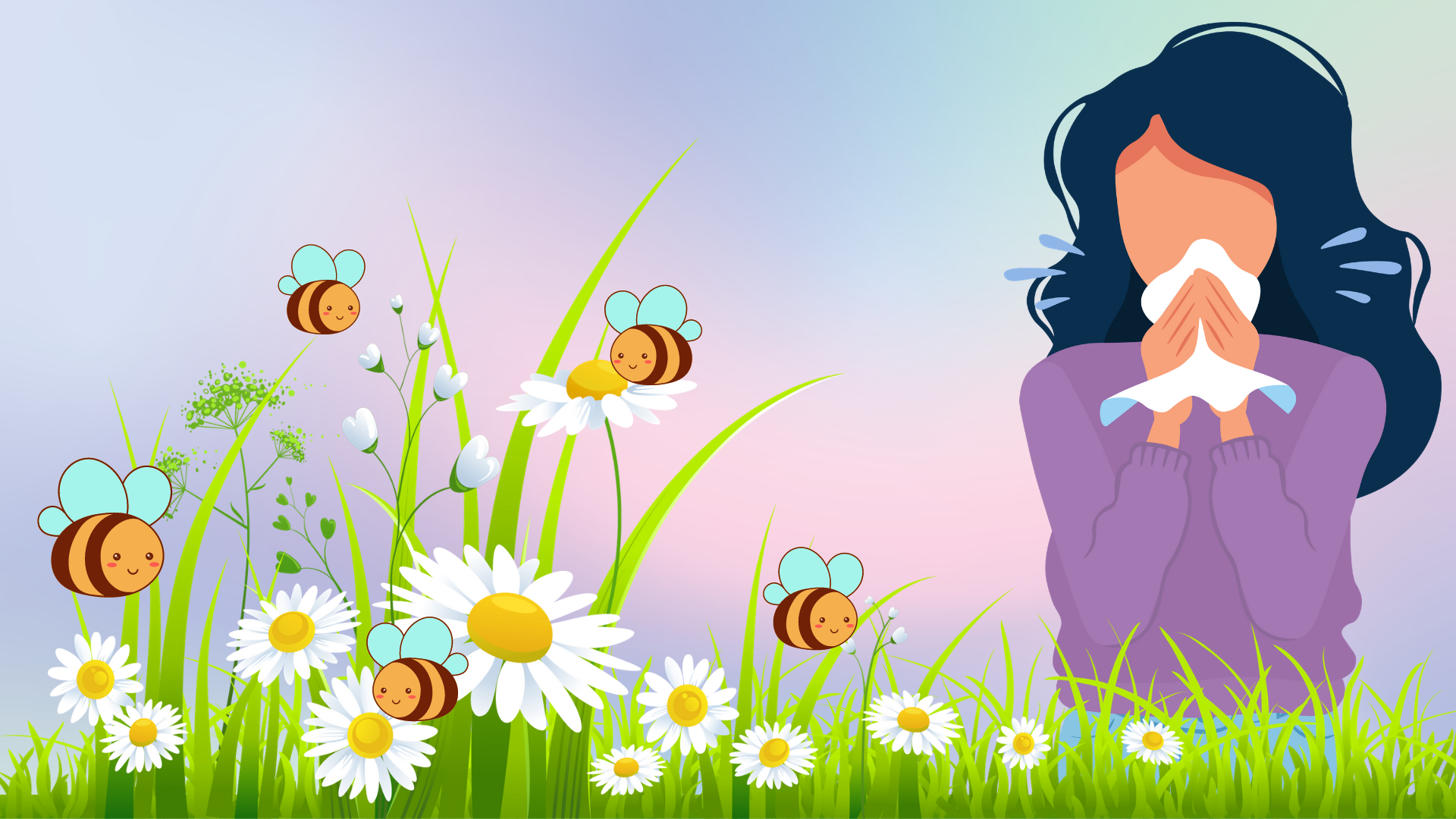
This last line from above makes no sense to me:
And unfortunately, bee pollen has been known to cause mind to fatal allergic reactions.
You’re right it didn’t make sense because there was a typo! “Mind” was supposed to be “mild.” It has been corrected. Thank you for pointing that out!
This post makes no sense at all. It uses straw man arguments. Oral tolerance induction is not only a thing but proven and even if local honey contains small amounts of pollen and it results in ingestion in small doses over time it could indeed lead to tolerance. I am not familiar with any peer reviewed work here that has actually disproven the claim and the claim itself doesn’t hurt but could be true. To be quite frank, posts like these hurt science especially nutritional science more than help it. Science is complex and immunology even more so. You can’t use such a simple argument to say something can’t possible be true. And I work in mucosal immunology where most things are empirical.
I addressed most of your comment in the article, so I would refer you back to the post.
But I would add: The burden of proof is on those making the claim. It’s not up to anyone else to prove it wrong.
I agree with your comment here. Peoples lived experiences are valid
Personal experiences can be misleading: science works in part because it recognizes our biases and corrects for them.
This may help: https://thinkingispower.com/four-ways-your-personal-experiences-can-lead-you-astray/